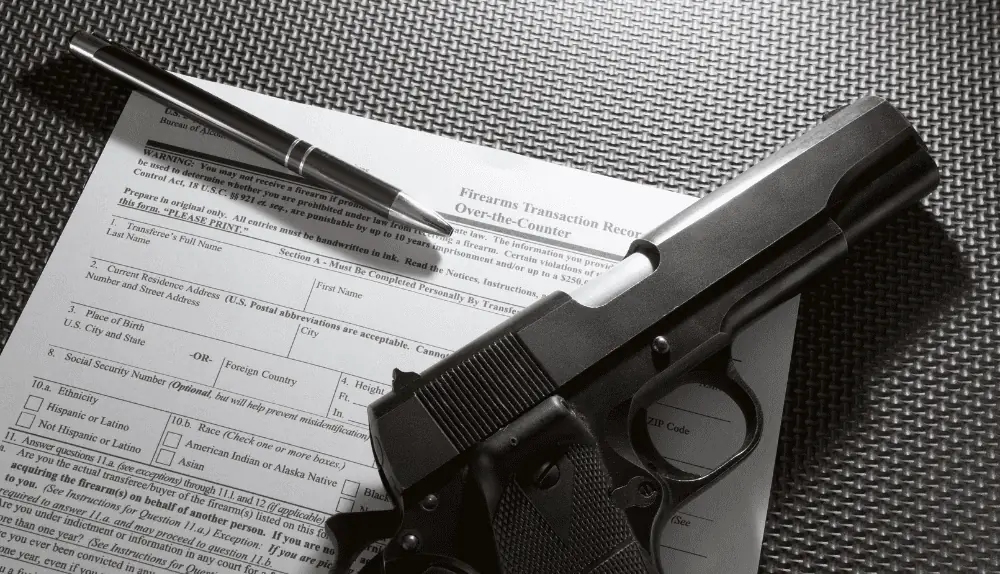Let’s be honest—selling guns online sounds easy enough. You snap a few pictures, post your listing, maybe toss in a dramatic description like “museum-grade condition,” and boom—someone hits “buy.” But… not so fast, yeah.
The internet has completely changed how people buy and sell just about everything, and firearms are no exception. Whether you’re clearing out part of your collection, looking to fund a new piece, or thinking about starting a legit side hustle, the digital marketplace is wide open—but also layered with rules, red tape, and a few landmines you want to avoid.
This isn’t just about uploading a listing. There’s legal stuff. Compliance stuff. Logistics. Strategy. And trust me, the moment you sell your first piece and ship it out—legally and safely—you’ll realize how many moving parts are involved.
So, if you’re here to figure out how to do this right, welcome, let’s unpack the real-world guide to selling guns online—legal tips, best practices, personal stories, and some gotchas you’ll want to sidestep.
The Landscape: Where Selling Guns Online Fits in Today’s World
You’ve probably seen it—GunBroker listings, Reddit posts, even Instagram shops (yes, people try). Firearm sales are occurring everywhere, and a significant portion of them are now taking place online.
There’s good reason for that. Selling online means you’re not just limited to your local gun show crowd or the guy at your range who’s always “thinking about buying something.” You can reach people across the country—and if you’re into historical or collector’s pieces, even across borders (with extra caution, obviously).
But the internet isn’t a free-for-all. It’s layered with laws, platform policies, and a mix of buyers, some who know their stuff and others who think a Mauser is a type of dog.
First Things First: The Legal Maze (And Why You Really Should Care)
We can’t talk about selling guns online without starting with the law. And look, I get it—legal talk is boring. But messing this up could mean severe fines, criminal charges, or at the very least, a nightmare you don’t want.
The Basics
Here’s what’s non-negotiable:
- Federal law requires that you ship through a licensed FFL (Federal Firearms License) holder.
- Background checks are required. Always. No, a “handshake agreement” won’t suffice.
- Record everything. Serial numbers, buyer info, dates—get it down and save it.
The 1968 Gun Control Act serves as the foundation for all of this. It’s the law that makes it illegal to sell to “prohibited persons”—felons, certain non-citizens, and a few others on the list. And if you’re shipping to another state? That has to go through an FFL.
The State-Specific Twist
Now here’s where it gets messy. Each state has its weird little quirks.
Some states have extra paperwork. Others require waiting periods. A few make you jump through hoops, even for antique black powder rifles. Before listing something for sale, do a quick double-check of your state laws and the buyer’s.
Better yet? Keep a lawyer or compliance expert on speed dial. Or at least know someone at your local gun shop who’s done this before.
Step One: Prep Like a Pro (Or at Least a Responsible Adult)
Before you even take a single photo or type your first listing, get your ducks in a row.
- Find a reliable FFL. You’re going to need them. Treat this like finding a good mechanic—you want someone competent and honest.
- Understand how background checks work. Your FFL will typically handle this, but it’s still a good idea to understand the process.
- Create a solid record-keeping system. Spreadsheet, notebook, secure app—whatever works. You’ll need to track serial numbers, buyer names, and transaction dates. (No excuses.)
Also, If you’re planning to sell regularly—even just a few pieces a month—you might want to get your own FFL. It can speed things up, reduce headaches, and give you a more professional appearance.
The Shipping Dance: Legal, Safe, and Not Stressful
This is the part that freaks out a lot of people. Shipping firearms feels intimidating, and for good reason—you can’t just throw it in a USPS flat rate box and hope for the best. (That’s illegal, by the way.)
Here’s what matters:
- Use a carrier that handles firearms. FedEx and UPS are your best bets. Just call ahead and confirm their rules.
- Package it like you care. Bubble wrap. Hard case. No rattling. No visible markings that scream “firearm inside.”
- Get insurance. Always. It’s a few extra bucks that could save you hundreds—or thousands—if something goes sideways.
- Label legally. Follow the carrier’s rules. Some require specific labeling, others don’t.
Shipping through your FFL can help alleviate some of this burden. Let them guide you—it’s what they’re there for.
Where to Sell: Picking the Right Online Spot
The internet’s full of platforms, but not all are created equal, especially when it comes to guns.
Dedicated Firearm Marketplaces
These are your best bets. Sites like GunBroker, Armslist (with caveats), and even some specialty collector forums offer built-in audiences who know what they’re looking for: less explaining, more selling.
Auction Sites
These can be hit or miss. eBay doesn’t allow firearm sales (no surprise there), and general auction platforms often ban gun parts, too. Stick with gun-focused platforms unless you’re just selling accessories.
Each platform has its vibe—some are very polished, while others are reminiscent of a 1998 message board. Try a few. See what clicks.
Crafting the Perfect Listing (Without Sounding Like a Used Car Ad)
This is where most people either succeed or fail.
You want your listing to stand out, but not scream “I copied this from Wikipedia.” Here’s the formula:
- Be specific. Make, model, caliber, condition. Serial number? Include it or be ready to provide.
- Tell a story. Mainly for historical or collectible pieces. Where’d you get it? Any interesting background?
- Show, don’t tell. Photos matter. Use good lighting, clean backgrounds, and close-ups—no potato-cam photos.
- Highlight the extras. Original box? Custom grips? Factory engraving? These details can make or break a sale.
Oh, and write like a human. “Pristine tactical precision instrument” is fine, but “runs clean, barely used, comes with two mags” is better.
Pricing, Promotion, and the Art of Getting Noticed
Let’s not sugarcoat this—pricing is tricky.
The price is too high, and it just sits. The price is too low, and some smart buyer grabs it before you realize you gave away your unicorn.
Do your homework. Look up comparable listings. Pay attention to what’s selling (not just what’s listed). Also factor in condition, extras, and timing—some guns sell better in certain seasons.
As for marketing? Don’t be afraid to branch out:
- Social media (where allowed)
- Gun forums
- Email lists
- Collector groups
And yes, word of mouth still works—especially if you’re dealing in higher-end or rare pieces.
Communication: Where Deals Are Made (or Killed)
Once someone bites, don’t ghost them. Responsiveness builds trust. A fast, friendly reply can turn a maybe into a sale.
- Answer questions quickly.
- Be honest about condition, history, or quirks.
- Share extra photos if asked.
- Stay professional—even if the buyer isn’t.
The best sellers treat every buyer like a future repeat customer. And many of them are.
Returns, Disputes, and Other Not-So-Fun Stuff
No one likes this part, but let’s face it—things go wrong.
Have a return policy. Spell it out clearly. Some platforms require one, others leave it up to you. Either way, decide your rules before you need them.
And if a buyer gets upset? Stay cool. Listen. Offer solutions. Most disputes can be fixed with decent communication.
One more thing—sales tax. Depending on where you live (and where your buyer lives), you might owe something. Some platforms calculate and collect it for you, others don’t. Consult a tax professional if you’re unsure.
Reviews, Ratings, and Reputation: Your Digital Street Cred
People read reviews. People trust ratings. That one guy with 104 perfect reviews? He’s selling all day long.
Ask happy buyers to leave reviews. Respond to them—yes, even the one-star ones. Own your mistakes, thank people for their business, and build your rep the right way.
Also, respect buyer privacy. Secure your records, protect personal info, and be upfront about how you handle data.
Special Case: Selling Classic and Collector Firearms
If you’re selling a Colt SAA, a Garand with wartime markings, or something rare from a dusty armory in Europe, treat it like an antique, not just another item.
Collector buyers want history. Provenance. Paper trails. The more documentation, the better.
Understand what you’ve got. Learn the story behind it. And tell that story in your listing. It can mean the difference between a casual glance and a full-on bidding war.
For the Beginners and the Curious: You’re Welcome Here Too
You don’t need to be a gunsmith or historian to sell online. Perhaps you’ve inherited a few guns and want to do them justice. Maybe you’re just dipping your toes in.
Here’s your starter pack:
- Learn how different guns work (revolver vs. semi-auto, bolt vs. lever).
- Always, always follow safety rules.
- Ask questions. Forums, shops, and experienced collectors—they’re a goldmine.
- When in doubt, lean on your FFL.
You don’t need to know everything—just enough to be safe, legal, and fair.
Staying Ahead: Regulations, Trends, and What’s Coming Next
The only constant in the gun world? Change.
Laws shift. Platforms update rules. Buyers evolve. What sells like crazy this year might flop the next. So stay plugged in.
- Follow state and federal updates.
- Read industry blogs or newsletters.
- Watch what’s trending—military surplus, hunting rifles, polymer pistols, etc.
The more informed you are, the better your decisions.
Looking Ahead: The Future of Online Gun Sales
So where’s this all going?
Probably toward more regulation. Maybe better tools for digital FFL compliance. Possibly even VR gun shops—who knows? What’s clear is this: the space is growing. And people who get good at it now will be ahead of the curve.
Whether you’re a casual seller, a collector, or someone looking to build a serious side business, selling guns online can be rewarding, as long as you know what you’re doing.
And now you do.









